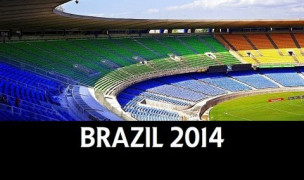 5 Terms
5 TermsHome > Terms > English, UK (UE) > Hundred Years' War
Hundred Years' War
A series of conflicts waged from 1337 to 1453 between the Kingdom of England and the Kingdom of France and their various allies for control of the French throne. It was the result of a dynastic disagreement dating back to William the Conqueror who became King of England in 1066, while remaining Duke of Normandy. As dukes of Normandy, the English kings owed homage to the King of France. In 1337 Edward III of England refused to pay homage to Philip VI of France, leading the French king to confiscate Edward's lands in Aquitaine.
Edward responded by declaring that he, not Philip, was the rightful king of France - a claim dating to 1328 when Charles IV of France had died without a male heir. A claim for the succession had been made for Edward through the right of his mother Isabella, daughter of Philip IV. Instead, the son of Philip IV's younger brother, Charles of Valois, had been made king. The question of legal succession to the French crown was central to the war over generations of English and French claimants.
The war is commonly divided into three or four phases, separated by truces: the Edwardian Era War (1337–1360), the Caroline War (1369–1389) and the Lancastrian War (1415–1453), which saw the slow decline of Plantagenet fortunes after Joan of Arc (1412–1431) appeared. Contemporary European conflicts directly related to this conflict were the Breton War of Succession, the Castilian Civil War, the War of the Two Peters,and the 1383-1385 Crisis. The term "Hundred Years' War" was a term invented later by historians to encompass the events.
The war owes its historical significance to multiple factors. Although primarily a dynastic conflict, the war gave impetus to ideas of French and English nationalism. Militarily, it saw the introduction of weapons and tactics that supplanted the feudal armies dominated by heavy cavalry. The first standing armies in Western Europe since the time of the Western Roman Empire were introduced for the war, thus changing the role of the peasantry. For all this, as well as for its duration, it is often viewed as one of the most significant conflicts in mediaeval warfare. While most of the fighting took place on the continent, over time English political forces came to oppose the costly venture. In France, civil wars, deadly epidemics, famines and bandit mercenary armies reduced the population by about one-half.
The Anglo-Norman dynasty that had ruled England since the Norman Conquest of 1066, was brought to an end when Geoffrey of Anjou and Empress Matilda's son Henry (great-grandson of William the Conqueror) became the first of the Angevin kings of England in 1154 as King Henry II. The King of England, in what is now known as the Angevin Empire, directly ruled more territory on the continent than the King of France. A complication was that as dukes on the continent, English kings owed homage to the King of France. However the dukes had autonomy from the 11th century onward, neutralising the issue.
John of England inherited the Angevin domains from King Richard I. However, Philip II of France acted decisively to exploit the weaknesses of King John, both legally and militarily and by 1204 had succeeded in taking control of most of the continental possessions. The Battle of Bouvines (1214), along with the Saintonge War (1242) and finally the War of Saint-Sardos (1324), reduced England's holdings on the continent to provinces in Gascony and the complete loss of Normandy.
- Part of Speech: proper noun
- Synonym(s):
- Blossary:
- Industry/Domain: History
- Category: British history
- Company:
- Product:
- Acronym-Abbreviation:
Other Languages:
Member comments
Terms in the News
Featured Terms
phylum placozoa
Macroscopic, flattened marine animals, composed of ventral and dorsal epithelial layers enclosing ...
phylum cnidaria
Cnidarians. Hydras, hydroids, jellyfish, sea anemones, and corals. Free-swimming or sessile, with ...
share a term with millions
Share a term with millions of users around the world and increase your online visibility.Share a ...
oak
Genus native to the Northern Hemisphere with spirally arranged leaves, catkins for flowers and ...
Everest
The last but not least mount Everest. The Earth's highest mountain, with a peak at 8,848 metres ...
aglaonema
Genus of about 20 species of usually rhizomatous, evergreen perennials from tropical forest in Asia. ...
Robojelly
Robojelly is a hydrogen-powered robot desgined in the United States that moves through the water ...
Ferdinand Porsche
Ferdinand Porsche (3 September 1875 – 30 January 1951) was an Austrian-German automotive engineer ...
Marzieh Afkham
Marzieh Afkham, who is the country’s first foreign ministry spokeswoman, will head a mission in east ...
define1
Share a term with millions of users around the world and increase your online visibility.Share a ...
Contributor
Featured blossaries
stanley soerianto
0
Terms
107
Blossaries
6
Followers
2014 FIFA World Cup Venues
 12 Terms
12 Terms
Browers Terms By Category
- Marketing communications(549)
- Online advertising(216)
- Billboard advertising(152)
- Television advertising(72)
- Radio advertising(57)
- New media advertising(40)
Advertising(1107) Terms
- Gardening(1753)
- Outdoor decorations(23)
- Patio & lawn(6)
- Gardening devices(6)
- BBQ(1)
- Gardening supplies(1)
Garden(1790) Terms
- Material physics(1710)
- Metallurgy(891)
- Corrosion engineering(646)
- Magnetics(82)
- Impact testing(1)
Materials science(3330) Terms
- Manufactured fibers(1805)
- Fabric(212)
- Sewing(201)
- Fibers & stitching(53)
Textiles(2271) Terms
- Bread(293)
- Cookies(91)
- Pastries(81)
- Cakes(69)




